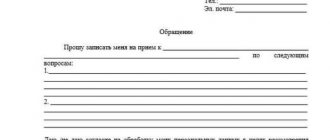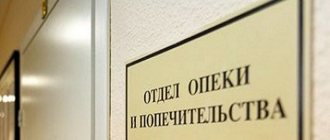Unfortunately, many have encountered problems with bribes. Students of technical schools and vocational schools often find themselves in this situation, when a teacher extorts a bribe for a positive result in an exam. What to do in such cases? What consequences might there be?
The issue of bribery in higher educational institutions and technical schools is more acute than ever. Moreover, in this situation, as a rule, both parties are to blame. Of course, most of the responsibility for accepting a bribe lies with the teacher. Many of them motivate this behavior by financial difficulties, low salaries, difficult life situations that require large expenses (for example, serious illness, loss of property, etc.).
However, no matter how hard life is for a teacher, extorting a bribe from a student, he uses his official position to enrich himself. Very often, such employees of educational institutions create unbearable conditions for studying and passing exams. A student in such a situation may have a question: “What to do if a teacher demands a bribe?” Sometimes it’s easier for him to pay than to listen to inappropriate nagging or perform meaningless tasks.
Lawyers answer your questions online: Ask a question online
The students themselves also make a significant contribution to corrupting teachers with bribes. An uncompleted assignment, a coursework submitted at the wrong time, a failed session, a huge number of educational “tails” force you to look for a simple way out of the situation - to give a bribe. At the same time, he should think about what the threat is for giving a bribe to a teacher? According to the law, the teacher will be responsible for receiving a bribe, and the student for giving it. This two-way punishment must be remembered when there is a desire to solve problems illegally.
What is a bribe?
A bribe is money or material assets that an official receives from the bribe-giver and performs illegal or illegal actions.
The teacher in this case is an official. He has duties which he must bear and observe in all cases. One of these responsibilities is to evaluate student work fairly and according to a common methodology.
If a student fails to cope with his studies, he must be suspended from classes and expelled from the university due to academic debt and academic failure. If a student copes with his studies, then it is necessary to support him in his educational development.
The initiator of giving a bribe can be anyone. This really determines what the punishment for the participant in the case will be. However, the size of the bribe and its form influence no less the future sentence. Let's list what a bribe might look like:
- MONEY. And it doesn’t matter whether domestic rubles or American dollars will be handed over to the teacher. Money will always be a bribe. The only thing that matters is its size. The higher it is, the more severe the consequences.
- EXPENSIVE GIFT: for example, jewelry, furniture, electronics, interior details, antiques, etc.
- TRANSFER OF PROPERTY: real estate, securities, vehicles, etc.
- PROVISION OF SERVICES
Even if a student really wanted to please the teacher and thank him for his time studying, he must be careful and not break the law. The same goes for services. For example, if a student tries to help a teacher with legal and medical papers through relatives for an “A” in a coursework, then this will be considered a crime.
Thus, in order to violate an article of the Criminal Code of the Russian Federation, it is not necessary that the teacher ask for a bribe. It is enough for the student to offer his assistance in exchange for grades or assistance in writing a thesis.
Additional nuances
During the investigation of such crimes, difficulties arise in determining the following situations:
- Only officials can be held liable for a bribe. But can a professor be classified as an official or will sanctions apply only to representatives of the dean’s office who combine leadership and teaching activities?
- It happens that a student gave money to the teacher, but did not receive the desired grade. On the part of the student, providing a monetary reward will be considered as giving a bribe. Under what article the teacher should be held accountable and whether there will be sanctions at all depends on the circumstances of the case.
What article threatens a bribe to a teacher?
If a teacher asks for a bribe, then he falls under Article 163 of the Criminal Code of the Russian Federation “Extortion”. However, it will be too difficult to prove his guilt. Therefore, many operatives carry out an operation together with a student to give a bribe. The purpose of the operation is to catch the culprit red-handed. In this case, the teacher will also go under Article 290 of the Criminal Code of the Russian Federation “Receiving a bribe.”
The student will not appear as a defendant in the case. He will act as the victim. Only the teacher will be punished.
If the transfer of the bribe has already taken place without the participation of government services, but the student confesses, then he will appear as an accused. However, he already has a guarantee of a reduced criminal sentence, which may remain suspended.
The teacher himself can receive a real prison term, as well as a fine.
- A fine of 25 or 50 times the amount he received
- Prohibition to engage in teaching activities for three years
- Forced labor for up to 5 years
- Imprisonment for up to 3 years
Thus, depending on the severity and size of the bribe required, the teacher will suffer severe punishment. A suspended sentence is practically not imposed unless there are circumstances mitigating the punishment.
These may be forced situations when a person had nowhere to get money from. For example, if he or a close relative requires a serious, expensive operation. In such cases, the teacher is reluctant to take money and only from the most difficult students. You need to look at the personality of the teacher, his characteristics from colleagues and students of different years. Merits to domestic and world science are taken into account, as well as years devoted to teaching.
However, all this does not justify the action of an adult, an official. The court will also issue a sentence, but will no longer take the fine into account in the punishment.
In addition, there is a place for witness testimony. If other students testify against the teacher and talk about other cases of receiving a bribe, then the teacher may be imprisoned for a long time.
Therefore, if a teacher asks for a bribe, you must first find out if he has personal problems. Teachers are not always arrogant and angry. You may be able to organize a legal fundraiser to provide financial assistance.
Illegal criminal prosecution of university teachers as a problem of intellectual safety
“Privatization” of the legal field with administrative resources) According to the Prosecutor General of Russia, about 90% of Russian officials are corrupt [1] and our annual losses due to corruption amount to $20 billion (AiF No. 40, 2008). The total amount of Russian “business corruption” is 2.66 times higher than federal budget revenues in 2005 ($474 billion with an average Moscow bribe of 0.5 million rubles). In relation to it, the volume of “everyday corruption” does not exceed 1% [2]. However, considerable efforts of the Ministry of Internal Affairs are aimed at eradicating gifts specifically to traffic inspectors, doctors and teachers (“Komsomolskaya Pravda” No. 17-t, 2011). For example, in 2007, the Central Internal Affairs Directorate of the Tyumen Region identified 300 corruption crimes in the field of educational services [3]. At the same time, they are usually interested not so much in the “defects” of the final university products - diplomas, but in the complaints of students by individual teachers conducting intermediate certification of their knowledge [4].
At the same time, the intellectual potential of one academic discipline does not exceed (by number) 1% of the total intellectual content of the thesis (project), and OBEP operatives exclude the possibility of provocative revenge from students against demanding examiners.
According to the law, only officials can be tried for a bribe, and teachers can only be considered as such only by order of their enrollment in any qualification commissions. Trials in the case of “bribe-taker” teachers should always begin with clarification of their official powers as subjects of crimes (set out in paragraph 4 of the Resolution of the Plenum of the Supreme Court of the Russian Federation No. 19 of October 16, 2009).
From the point of view of the law, gifts to the teacher will then be considered a “bribe” when there is irrefutable evidence of their extortion for legally significant consequences for students. In the Big Encyclopedic Dictionary, “legal fact” is interpreted as “a circumstance associated with the emergence, change or termination of legal relations.” The latter for students can only occur after the rector’s order to change their professional and official status.
For example, there was an “applicant”, but by order of admission to a university he became a “student”. In the future, there was a “student”, but became a “specialist with incomplete higher education” (after an order to expel an unsuccessful student from the university), or there was a “student”, and by order became a “graduate student” (after passing the state exam in his specialty), was a “graduate student”, and by order became a “certified specialist” (after defending his graduation project). Thus, a university “bribe” is always given for subsequent orders favorable to the “bribe giver” (enrollment in a university or for avoiding legal expulsion from it, for unreasonable admission to a diploma project, or for the assignment of a qualifying title based on the results of defending plagiarism of a diploma project).
Therefore, the so-called “a bribe” (the point of view of “fighters” against university corruption), which students give to examiners who do not have official authority, according to the law is not even such at all. In the verdicts of such criminal cases, it must be stated “for what purpose was the bribe given?” Then, in the case of such cases, brought against university teachers who are not in fact officials, it would be necessary to write down “ for issuing exam grades in the absence of knowledge of the academic discipline by student “bribe givers”, based on their personal interest in this . And what is the need to give the so-called “bribes” in the case when “failing students” have the right to retake this exam several more times? legally significant consequences” will they have in this case , when there is no reason at all to issue an order to change the status of such students? And what will be the actual (and not imaginary) benefit of the “bribe givers” here?
Teachers who are not included in the qualification commissions in legal terms cannot be “extortionists”, because in terms of the function they perform, they are interchangeable and in this regard, students are not administratively dependent on them.
In these cases, knowing that there are no “f’s” at state exams and at the defense of diploma projects, they initiate options for passing exams on a “commercial basis” themselves. There are also known facts that in cases where the Department of Economic Crimes exposed “loyal” teachers, the “victim bribers,” standing up in their defense, even beat up the students—“informants.” If graduate students with purchased projects were not allowed to enter the State Examination Committee, and if diligent students confirmed their knowledge with objective protection of their author’s developments (in their absence, the university would issue a certificate), then there would be significantly fewer people willing to be certified on the basis of “offerings.”
If law enforcement agencies believe that the lack of knowledge for students will be a benefit, then they, apparently, initially proceed from the fact that they enter universities only for the sake of getting “crusts.” And if so, then the possibility of purchasing ready-made coursework and diploma projects (works) is logically allowed. Proof of this is the advertising of the intellectual services market, which is not prohibited by law, and is widely represented in the media and on the Internet.
In Tyumen, for example, several specialized “firms” provide these services, among which, for example, “pro-znanie.ru” (Semakova str., 20, office 7, tel. 53-16-03, 29-78-07 , website - www.pro-znanie.ru). In total, up to 500,000 fake university diplomas are sold in Russia per year, and about a quarter of employed “specialists” present them. Such diplomas are most in demand among lawyers (with them you can even become a law enforcement officer), followed by diplomas from medical universities. Although employees with purchased diplomas are punishable under Art. 327 of the Criminal Code of the Russian Federation, however, criminal cases are rarely brought against them. This situation can be explained by the fact that among the personnel of the Ministry of Internal Affairs with higher education there are about 30% “commercial professionals”, who, due to their illegal qualifications, are unlikely to take a principled position in the fight against corruption in the field of educational services [5].
The ideological basis of the tactics of the modern fight against corruption in universities is the so-called. liberal democratic values of the “wild” market. However, the principle of life “everyone for himself, one God for all,” being introduced into the domestic education system, poses a threat to public safety, because the practical possibility of realizing the vicious aspirations of young people for ignorance (with the tacit consent and inaction of law enforcement agencies) not prohibited by law, inevitably depletes intellectual resource of the country [6].
In addition, the formal possession of diplomas from even prestigious universities in the country does not solve the problem of employment as it was under socialism. Currently, qualification documents are only needed for meetings (through the HR department) of their holders with employers. The lack of knowledge among “fake specialists” (including lawyers) when competing in the labor market may in the future bring them not personal “benefit” (a basic sign of crimes under Articles 290 and 291 of the Criminal Code of the Russian Federation), but harm. They will not be able to efficiently fulfill the duties assigned to them; their activities, sooner or later, one way or another, will negatively affect the final results of their work [7].
All offenses are divided into crimes and misdemeanors (disciplinary, administrative, civil).
According to existing legislation, material rewards for undeserved grades issued by non-official examiners should be interpreted not as a criminal act (under Article 290 of the Criminal Code of the Russian Federation), but as compensation their risk of being disciplinary punished for failure to comply with the quality standard of the educational process and non-statutory educational services . In legal terms, such teachers cannot be “extortionists”, because in terms of their production function they are interchangeable. In these cases, the options for taking exams on a “commercial basis” are initiated by the students themselves, who know that there are no “f’s” in state exams and in the defense of diploma projects. If graduate students with purchased projects were not allowed to enter the State Examination Committee, and if diligent students confirmed their knowledge with objective protection of their author’s developments (in their absence, the university would issue a certificate), then there would be significantly fewer people willing to be certified on the basis of “offerings.”
Unfortunately, the investigative authorities do not want to take into account the stated specifics of the organization of the educational process (do not understand?), as well as the fact that contractual students, by definition, cannot be “bribe givers”. At the same time, the judges, based on corporate-guild solidarity and the unspoken attitude of “plan at any cost,” while ignoring the arguments of lawyers and Art. 299 and 305 of the Criminal Code of the Russian Federation (punishment for an unjust sentence), “necessary” charges are brought in their cases.
Thus, according to the Tyumen judicial department, there is nothing strange in the fact that such students first pay for educational services, and then give “bribes” to teachers so that they do not provide them with such [8]. However, “the court is obliged to accurately qualify an act according to a specific norm of the Criminal Code and choose criminal punishment only within the sanction of this norm,” taking into account that “not guilt, but an act containing signs of a crime should appear as the basis for criminal liability.”
In this regard, even for poorly educated citizens it will be obvious that double payment for symbolic studies at a university will not be a corruption benefit in the sense of “receiving any improper advantages by the subjects of bribery” (Russian Criminological Encyclopedia. - M., 2000, p. 267). However, the prosecutor of the Tyumen region, the chairmen of the Regional Court and its Qualification Commission do not consider it absurd to classify their vicious purely personal interest as an economic crime of medium gravity (the OBEP is involved) interests of the civil service and service in local governments (Chapter 30 of the Criminal Code of the Russian Federation) .
In conclusion, we note that purchased qualification documents make it possible to easily form corrupt structures from the necessary (criminally capable) employees [9], which actualizes the targeted study of this issue in general. Unfortunately, the regional “elite” does not consider it important to pay attention to the stated excesses of the market education system and the question: “on the basis of which specialists is the modernization of Russia conceived?” stands open.
It is also known that in the post-industrial world, those countries that purposefully solve the problems of intellectual security will win the competition. In this regard, a) it is necessary to strengthen the social basis of the legal field, and b) to stop the illegal law enforcement practice of criminal prosecution of university teachers (see [10])
Assoc. architecture, Ph.D. V.B. LEBEDEV (academician of IASKB, author of the draft Doctrine of Urbanization Security of the Russian Federation) __________________________________________________________ INFORMATION SOURCES: 1. SOKOLOV A.N. Legal practice as a criterion for managing society: Monograph / Ed. A.N. Sokolov and V.M. Bocharova. – Kaliningrad, 2008. – P.34. 2. www.youtube.com/watch?v=MYDJYTcgnLo&feature=player_embedded#at=158, www.svobodanews.ru/content/article/2296677.html#335844520, anticorr.ru/skolko-vzyatok-platit-rossiya/, finam .info/news/article1B905/default.asp (about bribes in Russian courts). 3. guvd72.ru/press-service/news/news.php?ELEMENT_ID=1113. 4. genproc.gov.ru/news/news-60433/. 5. www.eliteeducation.ru/uslovijahttps://ecsocman.edu.ru/text/33470374/, www.klerk.ru/boss/articles/29839/, www.petrovka-38.com/unit1136page.php, www. externat-diplom.info/diplom-vishee.php?vishee=402, www.tyumen.rfn.ru/region/rnews.html?id=81567&rid=1445, e-educ.ru/main/106-kazhdyy-tretiy- diplom-o-vysshem-obrazovanii-yavlyaetsya-poddelkoy.html. 6. Intellectual security of Russia: problems and prospects. Monograph / Baranov P.P., Konoshenko V.A., Martynenko L.D., Popov A.V., et al.; Rep. ed.: Kontarev A.A. - Rostov-on-Don, 2007. - 140 p., CHERNICHKINA, G. N. Intellectual security of a person: Protection of rights to the results of intellectual activity by civil law / G. N. Chernichkina. //Legal security of a person in Russia. -M.: Publishing house MNEPU, 2001. -S. 100 - 105 (see also www.proatom.ru/modules.php?name=News&file=article&sid=220, www.energopress.ru/allmaterials/729/, www.oxpaha.ru/publisher_234_5522). 7. www.klerk.ru/boss/articles/29839/). 8. www.proctmo.ru/news/news_2981/. 9. www.directadvert.ru/news/txt/?id=8461&nnn_id=15100549, old.wciom.ru/arkhiv/tematicheskii-arkhiv/item/single/111525.html. 10. URUKOV V.N. Is a teacher at a state university a subject of crimes under Art. 285, 290 of the Criminal Code of the Russian Federation //Legal Education and Science”, - 2009. - N 4 (see also www.big-library.com/1241-urukov-vn-yavlyaetsya-li-prepodavatel-gosudarstvennogo-vuza-subektom-prestuplenij -po-statyam-285-290-uk-rf-yuridicheskoe-obrazovanie-i-nauka-2009-n-4-s-36-39.html, www.liveinternet.ru/users/vbl/, www.gani. ru/news/smi/1167223208/).
When does a teacher ask for a bribe?
The teacher asks for a bribe in different cases. As we said earlier, he may be driven by an urgent need to receive a large sum of money. On the other hand, there are additional motives for using official position.
For example, if a teacher is no longer satisfied with his salary and decides to earn extra money. This is the worst possible motive. Human greed knows no bounds. And to determine that a teacher is driven by a thirst for profit, you need to check several factors:
- Rumors at the university. If the majority of students from different courses and faculties know about bribes to the teacher, then we put a plus in favor of greed.
- Intensity of extortion. If a teacher asks for a bribe for the first time, then he hesitates, doubts and monitors the student’s reaction in order to immediately refuse. An experienced corrupt official will not doubt his power and capabilities; he conducts delicate but persistent negotiations with students. At the same time, there are often ultimatums: either this or nothing more.
- Selling your manuals and textbooks inside the university is the same as a bribe. Many teachers are published in publishing houses, and their books are purchased by the university. However, the lecturer can only tell you about his manual and tell you where you can rent or buy it.
So, all these factors indicate that the teacher is asking for a bribe out of a desire to profit from the students.
But there is also a third type of teachers who do not accept a bribe and threaten the student with expulsion. You need to be careful not to see a hint of a bribe in the teacher’s words. A simple threat can be an expression of indignant emotions. If you bring a bribe to such a teacher, it is unlikely that he will accept it. Most likely, the student will be expelled immediately.
Thus, to be sure that the teacher is asking for a bribe, you need to analyze his behavior and words. Perhaps he was not thinking about the bribe at all, but only wanted to encourage you to take action in your studies.
All the circles of hell
Natalia Poboykina
, legal manager:
– One of the most corrupt ones are on-site inspections of the Federal Tax Service. At the moment, tax officials know who they are going to and why. The preliminary amounts of additional charges for a specific enterprise are known in advance. They are calculated based on an analysis of the cash flow in the current account, submitted declarations and criteria for selecting organizations for a tax audit (the defining features in this case are the tax burden and profitability, as is known from the order of the Federal Tax Service dated May 30, 2007 No. MM-3- 06/ [email protected] ).
The favorite way of making additional charges is to identify the company being inspected among the counterparties. Eighty percent of companies in Russia operate in violation of the law, and most of them use fly-by-night scams. Since additional charges are often significant, fiscal officials may offer to reduce them for a fee, which is usually 10 percent of the estimated amount that the company must transfer to the budget. At the same time, ordinary inspectors are less and less likely to take it upon themselves to bargain and take money themselves - they send entrepreneurs “to resolve this issue” to the heads of departments. Sometimes these issues are discussed directly with the heads of inspections.
In addition to events within the framework of on-site tax authorities, they also provide a number of up to 50 percent of the refund amount. Unblocking a “one-day” current account, especially if there is money “resting” on it, this is 15–20 percent of the “frozen” amount. In addition, if an entrepreneur does not want to pay taxes, then “this issue can be resolved” with representatives of the relevant service on an individual basis. Approximately 10 percent of the amount of debt to the state goes into the pockets of the tax authorities, and they simply turn a blind eye to the remaining 90 percent.
In fact, it turns out that not a single decision of inspectors that is positive for the company is complete without offerings. Even if an organization has the right to a tax refund, it is almost impossible to achieve this “without losses”. Inspectors will lead the company through circles of hell until the director and accountant reconcile and offer money.
What article threatens a student for a bribe?
A student who gives a bribe to a teacher faces Article 291 “Giving a bribe.” This article states that giving a bribe to an official is punishable
- Fine up to 1 million rubles
- Salary or other income for one to two years to pay off the fine
- A fine equal to 5 to 30 times the amount of the bribe
- Correctional labor for up to 2 years
- Imprisonment for up to 5 years
None of these punishments will be easy for the student. Moreover, civil services can find out about the commission of corrupt acts from various sources. It doesn't have to be a red-handed appearance. If someone managed to film, video or audio record a conversation with a teacher or the transfer of money, then this is direct evidence. Also, do not forget about indirect ones.
Not only may the student’s reputation be damaged, but he will also have an entry in his personal file about a violation of the Criminal Code. With such a record, they will not want to hire him in his specialty.
Therefore, do not even think about agreeing to corruption. What to do if a teacher asks for a bribe? Let's tell you further.
Recommendations for combating financial extortion
The law clearly states the prohibition of extorting money, but the parent committee can use unobvious tricks. They may be forced to hand over funds so that their child does not stand out in the group. But this is not a reason to make concessions. At parent meetings, you can put forward the following arguments against school fees:
- Any monetary fees are illegal. Each parent has the right to refuse payments.
- The institution accepts voluntary contributions only to its current account. The school management is obliged to report to parents for the expenditure of money.
- Personal collections from teachers and other employees are prohibited. They are legal only if they are supported by agreements on paid educational services. Extortion of funds entails criminal liability and punishment, and also serves as a reason for prosecutorial review.
- The Parents Committee and its decisions have no legal force.
Some parents independently decide to provide financial support to the institution where their child is studying. These monetary investments are legal and relate to charity or patronage of the arts, since they are made on a voluntary basis.
about the author
Klavdiya Treskova - higher education with qualification “Economist”, with specializations “Economics and Management” and “Computer Technologies” at PSU. She worked in a bank in positions from operator to acting. Head of the Department for servicing private and corporate clients. Every year she successfully passed certifications, education and training in banking services. Total work experience in the bank is more than 15 years. [email protected]
Is this article useful? Not really
Help us find out how much this article helped you. If something is missing or the information is not accurate, please report it below in the comments or write to us by email
A teacher asks for a bribe - what to do?
If a teacher demands a bribe, then
- Make some noise at the university. Raise your ears to the dean's office and rector's office. It is necessary to create a resonance so that all students are indignant and rebel against such treatment. Yes, this method is not always favorable in outcome. The university management is trying to get rid of the hype, so the student can be kicked out along with the teacher so that the matter does not progress.
- Start by contacting the Ministry of Internal Affairs of the Russian Federation. A police station would be a good place to start. Write a statement against the teacher that he is extorting a bribe. Perhaps the matter should be limited to just this article. The teacher will be summoned for questioning and then the case will be sent to court. Or it will be dealt with by the procurator, who will pursue the case to the end. Perhaps the student will be involved in the operation to catch the teacher red-handed.
- If the case was closed under the article “Extortion”, but the teacher remained working at the university, and you were expelled, then there is a way out. You can call upon public organizations and the media to publicize the circumstances of the case. In this case, the university management will not be able to remain silent. After all, rumors can reach higher authorities. Therefore, they will give you an answer and reinstate you at the university.
So, we told you about three development options if a teacher asks for a bribe and you don’t want to pay. You can move through the options step by step, starting with the local one. Or choose one of them and act responsibly.
Where to complain about illegal extortions
Fundraising for school needs is the responsibility of the parent committee. But the financial situation in families is different. For some, the amount may be insignificant, but for others it may be exorbitant. Parents have the right to legally refuse to give money.
In this case, you will need to contact the management of the educational institution and demand a written answer about what funds are being raised for. Be sure to receive a response in writing. After this, the school will stop extorting funding. But if the parents’ request was ignored and the collections continued, a complaint should be filed with the relevant institutions in Moscow, St. Petersburg or any other locality where such actions occur. The application can be submitted to different institutions:
- city administration;
- municipal or regional education committee;
- police station;
- department for combating economic crimes;
- Ministry of Education;
- prosecutor's office
Sometimes parents are afraid to file a complaint with such organizations because their child will face negativity at school from teachers, other parents or administration. In such cases, it is advisable to include in the document a requirement for non-disclosure of information about the applicant.
How do they check who is guilty of giving a bribe to a teacher?
To find out that a teacher actually asked a bribe from a student, different methods are used. First, you need to get evidence from other students that they heard or saw the teacher asking for a bribe. An operation is then carried out in which the official is caught red-handed.
To do this, the student is given numbered cash, which is already sprinkled with a dye for fingerprints. A wiretapping bug is also placed on the student. The conversation must be recorded and will undergo linguistic examination in the future. If all the direct evidence is collected, the task force will immediately burst into the office and handcuff the corrupt official.
Of course, such large-scale operations are carried out only to incriminate major officials. The teacher is not included in the category of major corrupt officials, since he cannot take millions and billions of rubles. However, if it is planned to give a large bribe, or transfer money from the entire faculty, then it will take place under the supervision of the task force.
For a particular case, it will be enough to collect most of the indirect and some direct evidence. For example, if the student himself records a conversation with the teacher on a voice recorder. It must indicate the place of meeting and transfer of money, and it is also necessary that the teacher himself “burn” himself.
It is better to correspond on social networks. Not all teachers know about the dangers of social networks and therefore are not afraid to express themselves in correspondence.
Thus, the investigation will help to find out the details and circumstances of the corruption offense. If a teacher actually asks for a bribe, he will be punished to the fullest extent of the law.
How to avoid punishment
The legislation provides for several conditions under which the guilty person will be released from future legal liability. These include voluntary reporting of a crime to the police. The second circumstance is that the recipient of the material benefit himself extorted gratitude and created the conditions for receiving it. The third factor is the active cooperation of the police in the investigation of bribery crimes.
Thus, two parties are to blame for the bribe. Therefore, both participants will be held accountable. And if the person transferring the reward can be exempt from legal liability, then the recipient of the valuables will be punished, regardless of cooperation in the investigation of the offense.
Is a gift considered a bribe to a teacher?
Yes, a gift can be considered a bribe to a teacher if it exceeds the value of 3,000 rubles. In addition, the gift must be dedicated to a holiday or given for some important occasion. For example, if a student defended his thesis, he can congratulate and thank his supervisor. But it is important to choose the right gift.
If you are giving a gift from a single person, then it is better to spend a maximum of 1000 rubles on a gift. In this case, you will maintain your dignity, will not get caught, and your teacher will not get into an awkward position.
It is best to chip in for general gifts for teachers from the entire stream or group. Moreover, you cannot force your classmates to forcibly donate money to the general budget. They can only be called upon to hand over money, but nothing more.
Again, you can rent for about 1000-2000 rubles. The total cost should include a banquet table, flowers and gifts for scientific supervisors.
You can give small souvenirs and inexpensive gifts on Knowledge Day, Teacher's Day and the day of defending diploma projects.
The teachers themselves now directly refuse not only gifts, but also flowers and sweets. Why? Do they also fall under the article?
What do parents pay for at school?
Schools receive funding from the budget, from which teachers are paid, building repairs are made, furniture and equipment are purchased. Fundraising for school needs can only be voluntary.
The start of school is stressful not only for students, but also for parents. It is necessary to buy notebooks, uniforms, if provided by the selected educational institution, and additional stationery. But the costs don't stop there. Large sums are allocated for the repair of an office allocated for a classroom, corridors, a cafeteria or the entire building, cleaning and security.
Extortions in schools and kindergartens have appeared since the 90s. At that time, educational institutions were practically not funded by the state, and the donation of money by parents became the only way out of the crisis situation. But now things are much better with financing, and the extortions continue. Moreover, every year the requests from the administration or individual teachers increase.
In 2021, the Public Chamber of the Russian Federation created a hotline so that citizens could ask questions about money collections in schools. In just 4 months from the start of the helpline, several thousand complaints have accumulated. Most often, fees are spent for the following purposes:
- Security and security systems. Institutions install turnstiles and hire private security.
- Renovation of offices and the entire building, purchase of new equipment, furniture, chalk, cleaning products.
- Food in canteens. Free lunches are provided only to a small category of students.
- Workbooks and additional materials. Teachers believe that the information in textbooks is not enough, and parents buy additional teaching materials.
On average in the Russian Federation, school fees range from 2 to 5 thousand rubles per year per student. A curious situation related to extortions was recorded in Tatarstan in the city of Kukmor - parents of schoolchildren had to bring 16 kg of potatoes or an equivalent amount of money.
Are flowers considered a bribe to a teacher?
Flowers can be considered an expensive gift if their price exceeds 3,000 rubles. However, no one will open a case because the teacher was given flowers for Knowledge Day in the amount of 6,000 rubles.
The fact is that flowers cannot be resold or returned. They have an expiration date, so their value decreases every day. In addition, none of the teachers would think of using their official powers for a bouquet of flowers or a box of chocolates.
But before you give your supervisor the most expensive and beautiful bouquet, ask him for permission. There are teachers and teachers who immediately refuse to take gorgeous flowers for free. They leave them in the student’s hands, or force them to take them to the department and give them to all teachers.
Thus, the anti-corruption program in our country is working. People who are vested with official powers begin to feel a better sense of legal responsibility.
What to do if you are unfairly accused
Even if a teacher works honestly, does not take money from students, and follows the law, he still runs the risk of being accused of taking a bribe.
The teacher's actions may be as follows.
- Prove the fact that the student provoked the transfer of a bribe. For example, money was planted in the teacher’s pocket, office, documents, or a box of chocolates, accepted as a token of gratitude without any hidden intent.
- Use available methods of defense: testimony of witnesses (other colleagues who were present during the conversation between the student and the accused), recordings from surveillance cameras at the university, documents confirming the legality of actions against the student - regulations, instructions.
- If a criminal case has nevertheless been initiated, then in the absence of direct evidence (for example, audio recordings of a conversation), you can appeal the initiation of the case in court.
If money from a student was accepted, and the student himself passed the exam for this reason, then the teacher is recommended to seek help from a lawyer, admitting his guilt. It is necessary to try to mitigate the punishment, focusing on mitigating circumstances - a difficult financial situation, difficulties in the family.
Payment without guarantees
Elizaveta Novikova
, accountant:
– I work remotely with a company that sells in tents. At first I didn’t understand why holes were constantly appearing in the company’s budget. They finally explained to me that the right to trade in a certain area of the city is given “not for pretty eyes.” For setting up one tent, the bribe ranges from 30 thousand rubles to several hundred thousand. At the same time, no one guarantees the stability of the business. Thus, by one decision of Moscow Mayor Sergei Sobyanin, the illegally installed pavilions were simply loaded onto trucks and taken away. Previous agreements did not affect this process in any way.
The amount of a bribe or its equivalent depends on the area in which you work, proximity to public transport stops, and the metro. At the same time, in some councils the issue cannot be resolved with money. There, levies are used for the benefit of the city - for street repairs and landscaping. To be honest, I don’t know this whole system very well. Perhaps these amounts are then included in the budget for the same types of work, and from the allocated funds officials take “their own ruble.”
Dealing with a situation like this is difficult. Contact law enforcement agencies and courts every time officials try to extract a bribe from you? This is a serious risk for an entrepreneur. Because, having solved one problem through legal means, you get ten new ones.
Duty goes to the budget
Alexey Zaitsev
, lawyer:
– When registering business activities, businessmen do not have to pay a bribe; in terms of procedure, this system is built in the least bribe-intensive way. It is more profitable for tax authorities to unreasonably refuse registration and leave the state duty in the budget. After all, many, due to time pressure, are not ready for the long procedure of appealing a decision of a government agency or returning funds already paid. The initial stage is the most comfortable, since further activities without offerings are extremely difficult. The widespread use of “cash out” schemes entails claims from the tax authorities. Moreover, illegal schemes are seen by inspectors both where they exist and where the records are clean and there are no violations. But the “iron grip” of the fiscal is such that it is easier to pay than to prove for a long time that you are that rare businessman who works honestly.
Revealing FBI secrets: how to persuade a teacher to take your side?
Come on, try it
Is it possible to persuade the teacher to agree with everything you say if you did not prepare for the exam? Can! There is even a whole section in psychology that covers the ability to convince a person.
Our “mole” was a psychology professor who had once worked as an FBI agent for a long time. Taking part in numerous secret operations, he more than once had to extract information from even the most famous silent ones.
The main rule to follow when achieving the goal “How can you persuade any person” is this: make your opponent like himself.
Step One: Intentionally Make a Mistake
Make a mistake on purpose
During a conversation, an experienced speaker allows himself, as if by chance, to make a small mistake. This could be an error in pronunciation, a word misused in the meaning of the word, and so on.
The point is to get the listener to correct you. Then he feigns slight embarrassment, thanks the audience for the correction and speaks further, taking into account the corrections.
But be careful - your mistakes should not relate directly to the material on which you are answering.
This is done with three main goals:
- When the listener corrects the speaker (in our case, the teacher corrects the student), this gives him the opportunity to feel more confident.
- This allows the teacher to communicate with the student more freely.
- This gives the teacher the opportunity not to be afraid of making mistakes himself and lulls his own vigilance.
Step Two: Give Compliments in the Third Person
Give third-person compliments
How to win someone over and persuade him to do something? Of course, start complimenting him!
There are rules and subtleties here. For example, a student should under no circumstances make direct compliments, otherwise it will be regarded as undisguised flattery. In addition, some people are simply not ready to accept direct compliments and begin to experience discomfort.
In this case, compliments from a third person are great: mention, as if by chance, that you communicated with students of previous courses, and they are sure that this particular teacher (our hero) teaches his material more fully and accessiblely than all the other teachers of the course .
By the way! For our readers there is now a 10% discount on any type of work
Step three: express our sincere sympathy
We express our sincere sympathy
Do you want to know one of the main secrets of how to learn to persuade people? Show them your sympathy. People have always been interested in themselves much more than everyone else. And this is natural.
If you show a genuine interest in people, you will not only be able to make many friends and acquaintances, but also win the sympathy of teachers.
Your task: to find the optimal sympathetic statement that will be absolutely true. For example, on the day of the exam, let the teacher know that you are well aware of what a difficult day he is having today. The person should feel not pity on your part, but support.
It becomes incredibly pleasant for any person when they not only listen to him attentively, but also share his emotions with him.
Step four: make the interlocutor begin to praise himself
Make your interlocutor begin to praise himself
Remember: there is a rather fine line between flattery and compliment, so it’s best not to cross it. And even better - make your interlocutor begin to praise himself.
Here is an example of a proper conversation:
– During the last session, I took the exam from one group 7 times!
-Wow! You need to have nerves of steel and incredible endurance to listen to the same thing for 7 days from the same people!
– (probable answer we need to achieve) Yes, I had to try not to go crazy. Of course, I did a great job and all the students passed the exam.
A year of closed doors
Ilya Leikin
, tax consultant:
– Bribes are very common to ensure that a company is not included in the Federal Tax Service’s inspection plan for the current year. To do this, you need to find a person at a specific tax office who can “resolve” the issue. According to the experience of companies that paid for such “services,” the tariff is about three million rubles, so that inspectors do not enter the company at all.
However, it is worth considering that the “older” the organization, the more money they will ask for. Because a company that has existed for more than five years must undergo inspection. And if for some reason this did not happen, it means that certain employees “made sure” that the visit to the company did not happen. And this is a significant risk for inspectors who create an inspection schedule.










